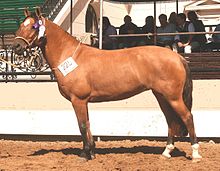Gaul
English
[edit]Etymology
[edit]Borrowed from French Gaule (“Gaul”), from Middle French Gaule (“Gaul”), from Old French Gaule, Waulle (“Gaul”, a term used to translate unrelated Latin Gallia (“Gaul”)), from Frankish *Walha(land) (“Gaul, Land of the Romans, foreigners”), from Proto-West Germanic *walh (“foreigner, Roman, Celt”), from Proto-Germanic *walhaz (“an outlander, foreigner, Celt”), probably of Celtic origin, from the same source as Latin Volcae (name of a Celtic tribe in South Germany, which later emigrated to Gaul).
Akin to Old High German Walh, Walah (“a Celt, Roman, Gaul”), Old English Wealh, Walh (“a non-Germanic foreigner, Celt/Briton/Welshman”), Old Norse Valir (“Gauls, Frenchmen”). More at Wales/Welsh, Cornwall, Walloon, and Vlach/Wallachia.
Despite their similar appearance, Latin Gallia is not the origin of French Gaule. During the evolution from Latin to French, stressed initial /ˈɡa-/ yielded /dʒa/ > /ʒa/ (cf. Latin gamba > French jambe), while unstressed final /-lia/ yielded /ʎə/ > /j/ (cf. Latin filia > French fille). Thus, the regular outcome of Latin Gallia is /ʒaj/ ⟨Jaille⟩, which is attested in several French toponyms: La Jaille-Yvon, Saint-Mars-la-Jaille, etc.
Pronunciation
[edit]- IPA(key): /ɡɔːl/
Audio (Southern England): (file)
- (cot–caught merger) IPA(key): /ɡɑl/
- Rhymes: -ɔːl
- Homophone: gall
Proper noun
[edit]Gaul
- (chiefly historical) A historical region roughly corresponding to modern France, Luxembourg, Belgium, most of Switzerland, and parts of Northern Italy (Lombardy), the Netherlands, and Germany west of the Rhine.
- Hypernyms: (historical) Celtic Gaul, Belgic Gaul, Aquitaine, Cisalpine Gaul, Transalpine Gaul, Gallia Narbonensis
Translations
[edit]
|
Noun
[edit]Gaul (plural Gauls)
- A person from Gaul.
Related terms
[edit]Translations
[edit]
|
Anagrams
[edit]German
[edit]Etymology
[edit]From Middle High German gūl, of obscure ultimate origin, but possibly ultimately from Proto-West Germanic *geutan (“to pour, cast”), referring to a powerful male horse, a "seed-pouring animal."[1] Cognate with Dutch guil (“old horse”).
Pronunciation
[edit]Noun
[edit]Gaul m (strong, genitive Gaules or Gauls, plural Gäule)
Declension
[edit]Derived terms
[edit]References
[edit]- ^ J. de Vries (1971), Nederlands Etymologisch Woordenboek, Leiden
Further reading
[edit]Hunsrik
[edit]
Alternative forms
[edit]- kaul (Wiesemann spelling system)
Etymology
[edit]From Middle High German gūl, of obscure ultimate origin, but possibly ultimately from Proto-West Germanic *geutan (“to pour, cast”), referring to a powerful male horse, a "seed-pouring animal." Cognate with German Gaul.
Pronunciation
[edit]Noun
[edit]Gaul m (plural Geil, diminutive Geilche)
- horse
- Die Geil sin schnell.
- The horses are fast.
Further reading
[edit]Pennsylvania German
[edit]Etymology
[edit]From Middle High German gūl, of obscure ultimate origin, but possibly ultimately from Proto-West Germanic *geutan (“to pour, cast”), referring to a powerful male horse, a "seed-pouring animal." Cognate with German Gaul, Middle Low German gûl, and Dutch guil (“old horse”).
Noun
[edit]Gaul m (plural Geil)
Plautdietsch
[edit]Etymology
[edit]From Middle Low German galle, from Old Saxon galla, from Proto-West Germanic *gallā, from Proto-Germanic *gallǭ.
Noun
[edit]Gaul f (plural Gaule)
- English terms borrowed from French
- English terms derived from French
- English terms derived from Middle French
- English terms derived from Old French
- English terms derived from Frankish
- English terms derived from Proto-West Germanic
- English terms derived from Proto-Germanic
- English terms derived from Celtic languages
- English 1-syllable words
- English terms with IPA pronunciation
- English terms with audio links
- Rhymes:English/ɔːl
- Rhymes:English/ɔːl/1 syllable
- English terms with homophones
- English lemmas
- English proper nouns
- English uncountable nouns
- English terms with historical senses
- en:Historical and traditional regions
- English nouns
- English countable nouns
- en:Celtic tribes
- en:Demonyms
- German terms inherited from Middle High German
- German terms derived from Middle High German
- German terms derived from Proto-West Germanic
- German 1-syllable words
- German terms with IPA pronunciation
- German terms with audio links
- German lemmas
- German nouns
- German masculine nouns
- Regional German
- de:Horses
- Hunsrik terms inherited from Middle High German
- Hunsrik terms derived from Middle High German
- Hunsrik terms derived from Proto-West Germanic
- Hunsrik 1-syllable words
- Hunsrik terms with IPA pronunciation
- Hunsrik lemmas
- Hunsrik nouns
- Hunsrik masculine nouns
- Hunsrik terms with usage examples
- Pennsylvania German terms inherited from Middle High German
- Pennsylvania German terms derived from Middle High German
- Pennsylvania German terms derived from Proto-West Germanic
- Pennsylvania German lemmas
- Pennsylvania German nouns
- Pennsylvania German masculine nouns
- Plautdietsch terms inherited from Middle Low German
- Plautdietsch terms derived from Middle Low German
- Plautdietsch terms inherited from Old Saxon
- Plautdietsch terms derived from Old Saxon
- Plautdietsch terms inherited from Proto-West Germanic
- Plautdietsch terms derived from Proto-West Germanic
- Plautdietsch terms inherited from Proto-Germanic
- Plautdietsch terms derived from Proto-Germanic
- Plautdietsch lemmas
- Plautdietsch nouns
- Plautdietsch feminine nouns
- Plautdietsch 1-syllable words
